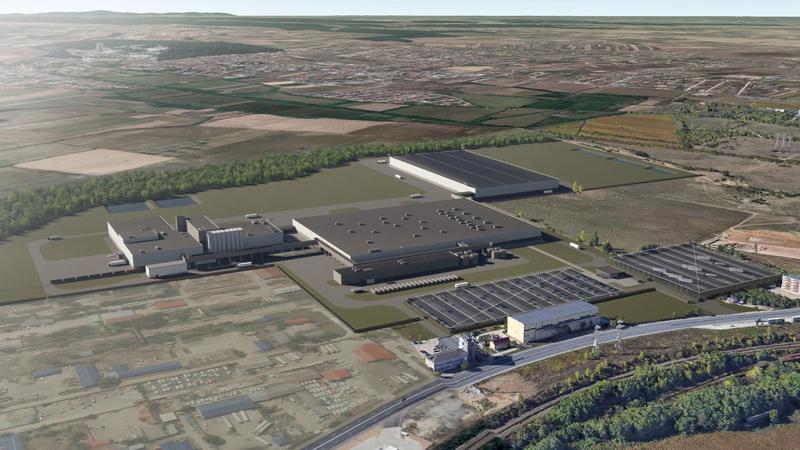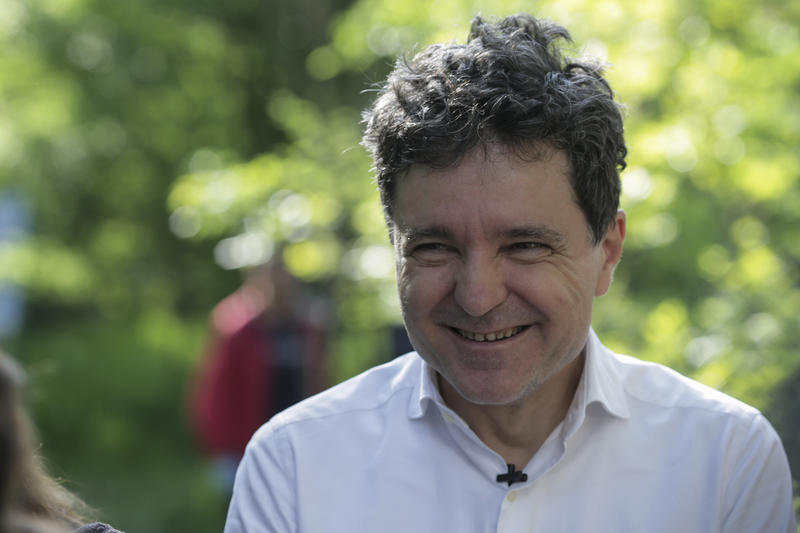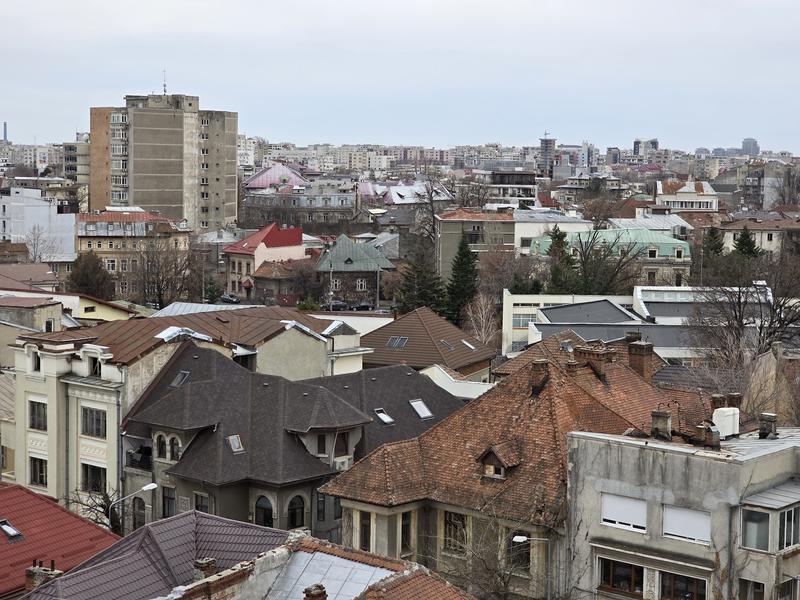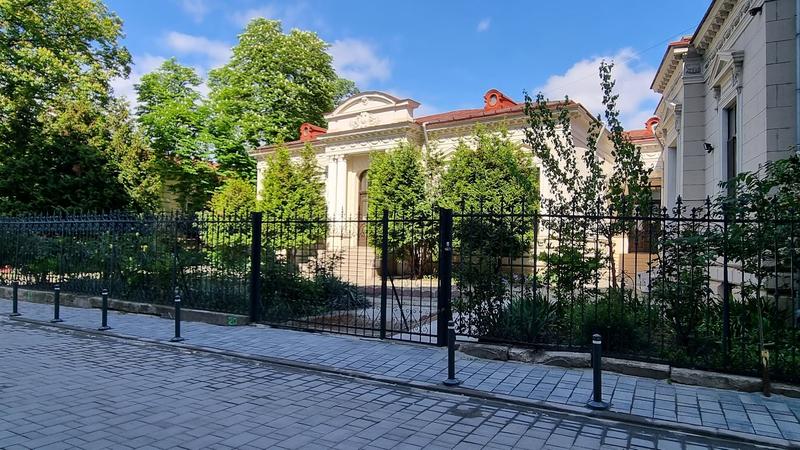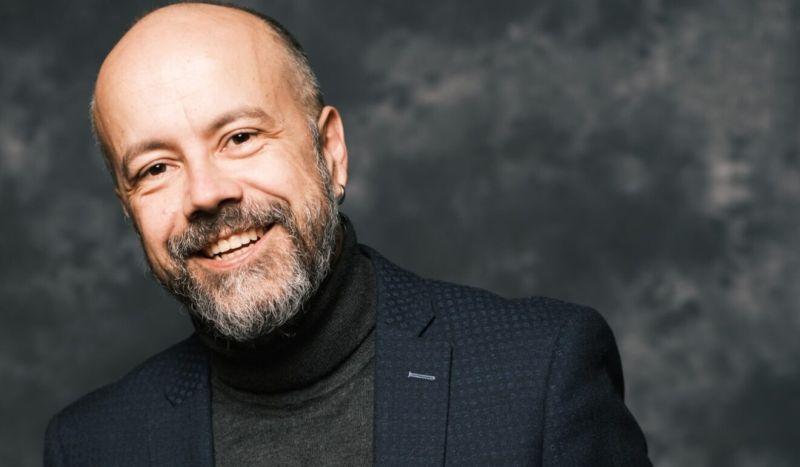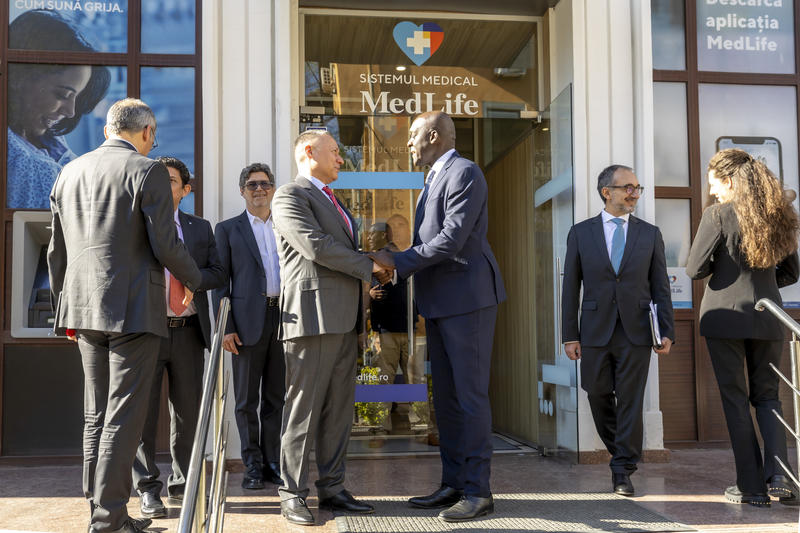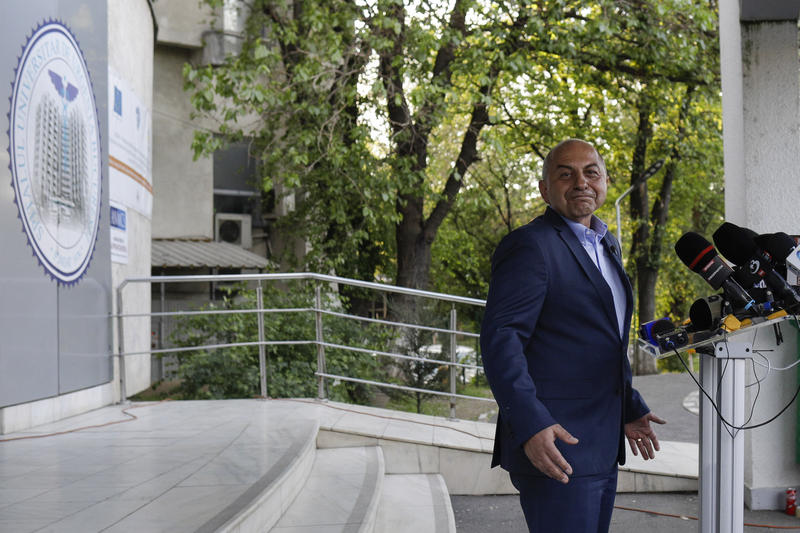Ministerul german de externe se gandeste la o schimbare a politicii fata de statele din Estul Europei. Acestea ar urma sa nu mai fie puse in fata unei alegeri obligatorii intre apropierea de Bruxelles si cea de Moscova, relateaza Der Spiegel(articol in lb. germana). Marti, in cadrul asa numitei "Trilaterale de la Weimar", ministrul Frank-Walter Steinmeier va discuta aceasta abordare cu omologii sai din Franta si Polonia.
In urma cu circa o luna, Steinmeier, Fabius si Sikorski (ministrii de Externe ai Germaniei, Frantei si Poloniei) anuntau un mare succes, anume incheierea unui acord intre puterea si opozitia ucraineana dupa masacrul de la Kiev. 24 de ore mai tarziu, documentul era deja maculatura, parti ale opozitiei nu au respectat acordul, iar presedintele Ianukovici fugea din tara.
De atunci, multe s-au intamplat in Ucraina. Crimeea a fost anexata de Federatia Rusa, iar NATO isi sporeste efectivele militare din est. Astazi are loc prima intalnire trilaterala a celor trei ministri de externe de la misiunea lor comuna de la Kiev, iar discutiile se vor axa, bineinteles, pe situatia din Ucraina si pe noua configuratie a Estului Europei.
Declaratia comuna semnata de Steinmeier, Fabius si Sikorski contine ideea unei flexibilizari a relatiilor cu partenerii Uniunii Europene din est. Cu alte cuvinte, cei trei diplomati par a trage concluzii dupa situatia in care s-a gasit Ucraina: cea de a alege intre apropierea de UE sau de Moscova. Oferta de cooperare mai stransa cu statele din Parteneriatul Estic ramane valabila. "Dar nu vom mai pune vecinii nostri estici in situatia unei alegeri ori-ori", se arata in document.
Cum ar putea insa arata aceasta noua politica de vecinatate? Ce oferte ar putea fi facute unor noi parteneri din Est?
Surse din ministerul german de externe afirma ca Parteneriatul Estic a fost gandit ca o alternativa la perspectiva de aderare la UE. In noua politica estica, fiecare stat partener ar urma sa beneficieze de o oferta croita special pentru el, lucru valabil si pentru instrumentele de finantare care ar trebui sa fie pe o perioada mai scurta de timp si sa aiba mecanisme mai bune de control.
Tarilor mai avansate din cadrul Parteneriatului ar urma sa le fie oferita si posibilitatea integrarii intr-o piata unica, masura ce ar fi mai cuprinzatoare decat acordul de liber schimb din prezent. La acest capitol insa, ar trebui luata in considerare intotdeauna si compatibilitatea cu alte spatii economice. Traducerea din limbaj diplomatic ne duce cu gandul la Federatia Rusa, care incerca sa integreze Ucraina in proiectul sau de Uniune Eurasiatica mult inainte de ocuparea si anexarea Crimeei.
In fine, Germania vizeaza si o coordonare mai buna a politicii externe a UE. Inaltul Reprezentant pentru Politica Externa, post care va fi schimbat odata cu intreaga Comisie Europeana, ar urma sa primeasca atributii de coordonare a tuturor comisarilor europeni care au relatii cu statele estice prin prisma atributiilor de portofoliu.
Din informatiile disponibile deocamdata nu e clar daca aceasta schimbare va afecta si statele care au semnat deja Acordul de Asociere, cum este cazul Republicii Moldova. In declaratia comuna a ministrilor de externe din Trilaterala de la Weimar se precizeaza ca "suntem pregatiti sa oferim sprijin si dupa semnarea Acordului de Asociere". La finalul documentului, ministrii de externe german, francez si polonez propun insa intalniri trilaterale UE-Rusia cu R. Moldova, Ucraina si Georgia pentru a discuta despre consecintele semnarii Acordului de Asociere.
Textul integral al declaratiei comune a ministrilor de Externe din Germania, Franta si Polonia (eng.):
Gemeinsame Erklärung zur Ukraine der drei Außenminister des Weimarer Dreiecks Frank-Walter Steinmeier (Deutschland), Laurent Fabius (Frankreich), und Radosław Sikorski (Polen) in Weimar
Erscheinungsdatum
31.03.2014
We, the Foreign Ministers of the Weimar Triangle, are deeply concerned about the crisis in Europe we are currently experiencing. Ever since our joint visit in Kyiv in February, we have jointly been trying to find ways to de-escalate the situation.
In this context, we welcome the recent deployment of the OSCE Monitoring Mission as a first de-escalating step in the right direction. The international observers will gain an objective picture of the situation and will contribute to reducing tensions and fostering peace, stability and security. It is important that the mission has full access throughout Ukraine. We will continue our endeavours to strengthen the role of the OSCE for the resolution of the crisis.
Following the European Council meeting we invite the EU to step up efforts to use the instruments at its disposal to help de-escalate the situation.
By Crimea’s annexation Russia violates Ukrainian sovereignty and territorial integrity. This is a breach of the Ukrainian constitution and of international law. We do condemn this act of aggression unambiguously.
We jointly advocate for a common European response to this challenge. We will not accept a policy that divides and splits Ukraine, or that seeks to transpose the action taken in Crimea to other parts of Ukraine or other Eastern European partner countries. If Russia were to pursue this course, we would support taking new strong action, including in the economic field.
Tomorrow NATO Foreign Ministers will extensively deal with this crisis. We, the Foreign Ministers of the Weimar Triangle, will advocate a threefold approach for the Alliance: We should reassure the security of our Allies, we should thoroughly analyze and readjust our relationship with Russia in light of recent developments and we should enhance engagement with our Partners, in particular with Ukraine in the context of the Ukrain-Nato Council.
At the same time, we acknowledge that Russia and Ukraine have always had special and strong ties based on history, economy and culture. These ties must be developed in the spirit of good neighbourly relations, mutual interest, genuine partnership and on the basis of Ukraine’s territorial integrity and sovereignty.
The Eastern Partnership was established as a policy supporting democratic, economic and social reforms in the Eastern neighbourhood. Its goal is to assist our Partners in building strong, stable, prosperous and citizen-oriented states and to facilitate people to people contacts. This is also in the interest of Russia.
Therefore, we will continue our policy and ensure that the Eastern Partnership countries are not faced with a stark choice – either moving closer to the EU or working with Russia in a comprehensive manner. Neither the Eastern Partnership of the EU nor the bilateral agreements the EU concludes with its partners are directed against Russia.
On 21 March, the EU signed the political provisions of the Association Agreement with Ukraine, which provide key impetus in the sphere of the development of the rule of law, and commitment itself to sign the remainder of the Association Agreement and Deep and Comprehensive Free Trade Area. In addition to that, in order to support the stabilisation of Ukraine’s fragile economy, the EU will unilaterally remove custom duties and provide financial support. In order to send a strong signal of support, consolidate international support efforts and discuss necessary reforms, we suggest to hold a conference on gathering international support, including technical assistance for Ukraine after the presidential elections. We would greatly appreciate Russian participation.
We welcome the staff-level agreement of the International Monetary Fund (IMF) with the authorities of Ukraine on an economic reform program that can be supported by a two-year Stand-By Arrangement (SBA) and look forward to its endorsement by the IMF Executive Board. We furthermore encourage the Russian Federation to contribute to the economic stabilization of Ukraine, in particular by facilitating trade under WTO rules and proposing fair gas prices to Ukraine.
On 21 March, the EU also decided to advance the signature of the Association Agreements with Georgia and Moldova. Moldova will soon profit from a visa-free regime with the EU; with Georgia significant progress in the framework of the Action Plan on visa liberalization has already been made. These are strong messages of our support and reflect the achievements of Moldova and Georgia. We are ready to provide further support after signature of the Association Agreement and to assist during the phase of implementation.
As witnesses of the 21 February agreement, we encourage the Ukrainian authorities to ensure that key principles contained in the agreement become part of Ukrainian policy. This would also contribute to the implementation of the Association Agreement:
o First: Inclusiveness: We encourage the government in Kyiv to reach out towards all regions of Ukraine and to ensure the representative nature and inclusiveness of governmental structures.
o Second: Democracy: Presidential elections must take place on May 25, be thoroughly prepared and be free and fair. In the same vein we would welcome a time table for the process leading to a constitutional reform.
o Third: Reconciliation: All sides must join in the effort to fully investigate all human rights violations and acts of violence. We encourage the Ukrainian leadership to accelerate the ongoing process of disarmament, re-establish the state monopoly on the use of force as well as distance itself from extremist groups.
Russia now bears great responsibility. We call upon Russia to refrain from any further escalation of the situation within Ukraine and reduce its military posture along the Russian-Ukrainian border. The same applies to other Eastern Partnership countries.
We support continued observer missions in Ukraine in the framework of the Vienna Document and the Open Skies Treaty, and we call on Russia to accept further missions on its territory beyond quota obligations.
We strongly advocate a meaningful dialogue between Ukraine and Russia, as a central step for de-escalation and the establishment of a mechanism to solve current outstanding issues related to military, economic and social issues.
Accompanying such a dialogue, we propose EU-Russia talks with Ukraine, Moldova and Georgia about the consequences of the EU-Association Agreements with Eastern European Partners for both sides.
We remain available for good offices to foster the spirit of the Agreement signed on February 21 in Kyiv.
